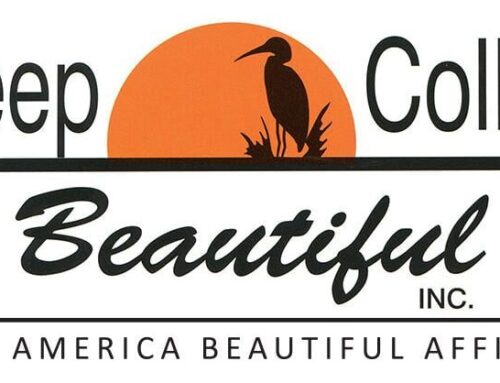Parents of 14-year-old Alabama girl with rare disorder demand medical cannabis access
May 2, 2025
BACK TO YOU. WELL, IT’S BEEN FOUR YEARS SINCE ALABAMA PASSED THE COMPASSION ACT, ALLOWING PATIENTS WITH SERIOUS MEDICAL CONDITIONS ACCESS TO MEDICAL CANNABIS. BUT TODAY, THEY’RE NO CLOSER TO GETTING RELIEF. YOW SHERI FALK. SHE’S BEEN FOLLOWING THIS STORY FOR US. SHE IS OFF TONIGHT, BUT SHE HAD A CHANCE TO SIT DOWN WITH THE FAMILY AND SHARE THEIR STORY. TAKE A LOOK. EARLIER THIS WEEK, FIVE PARENTS OF MINOR CHILDREN WHO WOULD GREATLY BENEFIT FROM CANNABIS TREATMENTS FILED A LAWSUIT AGAINST THE STATE MEDICAL CANNABIS COMMISSION, CLAIMING THEY FAILED TO MEET ITS MANDATORY DUTY OF SETTING UP A PATIENT AND CAREGIVER REGISTRY. AS STATED BY THE LAW. I SPOKE WITH ONE OF THE FAMILIES WHO ARE PART OF THE COMPLAINT. THEY ARE EXTREMELY FRUSTRATED WITH THE LACK OF PROGRESS AND SAY THEY’RE LOSING HOPE FOR THE CHANDLERS. EVERY DAY CENTERS AROUND CARING FOR THEIR DAUGHTER, CARLY. CARLY’S GOT A DISORDER CALLED CDKL5 DEFICIENCY DISORDER. IT IS A MULTIFACETED DISORDER, A RARE GENETIC DISORDER THAT CAUSES HER TO HAVE INTRACTABLE EPILEPSY, WHICH IS TYPICALLY NOT CONTROLLED BY CONVENTIONAL MEDICINE. SHE SUFFERED FROM SEIZURES SINCE SHE WAS A BABY, AND AS SHE CONTINUES TO GROW, MANAGING THEM IS GETTING HARDER. I GOT HER NAME. SHE’S NONVERBAL. YOU KNOW, SHE’S A SHE’S STILL IN DIAPERS. SHE’S 14, SO SHE IS 24 HOUR CARE. WHEN THE COMPASSION ACT PASSED IN 2021, THE CHANDLERS HOPED MEDICAL CANNABIS COULD BE AN ADDITIONAL TREATMENT IF ONLY THEY COULD ACCESS IT. SINCE IT PASSED, SEVERAL LAWSUITS HAVE BEEN FILED CHALLENGING THE WAY LICENSES ARE DISTRIBUTED. AND THE PHYSICIANS I’VE TALKED TO CARLY’S, YOU KNOW, PEOPLE THAT WE’RE REALLY CLOSE TO HAVE SAID THAT YES, IT’S SHOWING GREAT PROMISE IN THAT AND STOPPING THEM EVEN AS A RESCUE MED. BUT FOUR YEARS LATER, THE PROGRAM STILL ISN’T AVAILABLE TO PATIENTS. AND NOW THE CHANDLERS ARE AMONG FIVE FAMILIES SUING THE STATE. THEY SAY THE LAW THAT WAS PASSED STILL DOESN’T EXIST, AND THEY WANT A JUDGE TO FORCE THE COMMISSION TO ACT. IT’S BEEN FOUR YEARS TOO LONG. AND AND NOW IT’S TIME TO TO TO REALLY, YOU KNOW, BRING THE FOCUS BACK TO THE PATIENT. AND MY DAUGHTER AND MANY LIKE HER AROUND THE STATE DIRECTOR OF THE ALABAMA MEDICAL CANNABIS COMMISSION, JOHN MCMILLAN, SAYS EVERYTHING IS IN PLACE AND HAS BEEN. BUT COURT CHALLENGES ARE THE HOLDUP. BEEN ONLY A LITTLE WHILE AND LITIGATION HAS HELD ALL THIS UP FOR MANY MONTHS. BUT YES, WE DO HAVE A CONTRACT WITH A COMPANY CALLED TYLER TECHNOLOGY RIGHT HERE IN ALABAMA HAVE HAD SINCE 22 OR EARLY 23. MCMILLAN SAYS ONCE THE COURTS ALLOW IT, THE PROCESS WILL MOVE QUICKLY. IF YOU GO TO THE DOCTOR, YOU GET A RECOMMENDATION. YOU’RE IN THE SYSTEM THAT DAY, AND THEN THEN YOU’RE FIXED. AS SOON AS DOCTORS ARE CERTIFIED AND START TAKING PATIENTS. IT’LL BE A SAME DAY DEAL. BUT CHANDLER SAYS PATIENTS AND DOCTORS HAVE HAD NO GUIDANCE. AND EVEN IF THE COMMISSION WAS GIVEN THE GREEN LIGHT TOMORROW, THEY WOULDN’T KNOW HOW TO GET THEIR DAUGHTER SIGNED UP. THE PHYSICIAN WE HAVE IS NOT GONE THROUGH ANY TYPE OF PROCESS OR KNOW OF ANY PROCESS, SO WE’RE HOW MANY MONTHS OUT DOES THAT TAKE TO GET A CARD? TELL US HOW TO DO THAT NOW, WHERE WE WILL BE PREPARED AS PATIENTS FOR WHEN THERE IS PRODUCT WE CAN GO IN WITH OUR CARD AND HOW THE LAW STATES TO DO IT. WE CAN DO THAT. THE CHANDLERS SAY THEY JUST WANT ACCESS TO SOMETHING THAT MIGHT IMPROVE THEIR DAUGHTER’S QUALITY OF LIFE. WHEN CARLY HAS A ROUGH SEIZURE WHERE SHE IS JUST CONVULSING NONSTOP FOR SEVERAL MINUTES, IT’S YOUR OTHER KIDS INVOLVED, TOO. IT’S THE STRESS THAT IT PUTS ON YOUR. MY OLDEST SON, MY YOUNGEST DAUGHTER, OBVIOUSLY AMY, MY WIFE, ME. IT JUST BRINGS THE ENTIRE THE ENTIRE FAMILY IS JUST STRESSED OUT. AND THAT THAT IS WHAT’S HARD TO EXPLAIN TO PEOPLE. I’M GOING TO GO OUT ON A LIMB ONLY TO SAY, IF WE CAN JUST GET THROUGH THIS LITIGATION AND GET THE INVESTIGATIVE HEARING PROCESS GOING, THAT WE’LL WE’LL BE PRETTY CLOSE BY THE END OF THE YEAR TO HAVE SOMETHING HAVE A PROGRAM UP AND RUNNING. THE COMMISSION SAYS IT’S DOING ALL IT CAN, BUT ULTIMATELY IT’S UP TO THE COURTS TO CLEAR THE WAY. UNTIL THEN, FAMILIES LIKE THE CHANDLER’S
Parents of 14-year-old Alabama girl with rare disorder demand medical cannabis access
Four years after Alabama passed the Compassion Act to provide medical cannabis access to patients with serious conditions, families are suing the state medical cannabis commission for not establishing a patient registry as required by law.Earlier this week, five parents of minor children who would greatly benefit from cannabis treatments filed a lawsuit against the commission, claiming it failed to meet its mandatory duty.The Chandlers are one of the families involved in the complaint. They are extremely frustrated with the lack of progress and say they are losing hope. For the Chandlers, every day centers around caring for their daughter Carly. “Carly’s got a disorder called CDKL5 deficiency disorder. It is a multifaceted disorder. It’s a rare genetic disorder. It causes her to have intractable epilepsy, which is typically not controlled by conventional medicine,” Dustin Chandler, Carly’s father, said. She’s suffered from violent seizures since she was a baby, and as she continues to grow, managing them is getting harder. “She’s nonverbal. You know, she’s still in diapers. She’s 14, so she is 24-hour care,” Chandler said.>> YOUR NEIGHBORHOOD: Community coverage from WVTM 13When the Compassion Act passed in 2021, the Chandlers hoped medical cannabis could be an additional treatment, if only they could access it. Since it passed, several lawsuits have been filed, challenging the way licenses are distributed. “And the physicians I’ve talked to, you know, people that we’re really close to, have said that yes, it’s showing great promise and stopping them, even as a rescue med,” Chandler said. But four years later, the program still isn’t available to patients. Now, the Chandlers are among five families also suing the state. They say the law that was passed still doesn’t exist, and they want a judge to force the commission to act. “And it’s been four years too long and now it’s time to really, you know, bring the focus back to the patient and my daughter and many like her around the state,” Chandler said.Director of the Alabama Medical Cannabis Commission John McMillan said everything is in place, and has been, but court challenges are the hold-up.”It has been there for a good while and litigation has held all this up for many months, but yes, we do have a contract with a company called Tarleton Technology, right here in Alabama. We have had it since 22 or early 23,” McMillan said. McMillan said once the courts allow it, the process will move quickly. “You go to the doctor, you get a recommendation, you’re in the system that day, and then you’re fixed,” he said. “As soon as doctors are certified and start taking patients, it’ll be a same-day deal.”However, Chandler said patients and doctors have had no guidance, and even if the commission was given the green light tomorrow, they wouldn’t know how to get their daughter signed up. “The physician we have has not gone through any type of process or know of any process. So how many months out does that take to get a card? Tell us how to do that now, where we will be prepared as patients for when there is product we can go in with our card how the law states that we can do that,” Chandler said.>> WVTM 13 ON-THE-GO: Download our app for freeThe Chandlers say they just want access to something that might improve their daughter’s quality of life. “When Carly has a rough seizure where she is just convulsing nonstop for several minutes, it’s your other kids involved, too. It’s the stress that it puts on my oldest son, my youngest daughter, obviously Amy, my wife, me. The entire family is just stressed out, and that is what it’s hard to explain to people,” Chandler said.McMillan expressed optimism about the program’s future. “I’m going to go out on a limb only to say, if we can just get through this litigation and get the investigative hearing process going, that we’ll be pretty close by the end of the year to have something, have a program up and running,” he said.The commission says it’s doing all it can, but it’s ultimately up to the courts to clear the way. Until then, families like the Chandlers are still waiting and wondering “what if.”This is a developing story and will be updated as information becomes available. Stay updated on the latest stories with the WVTM 13 app. You can download it here.
Four years after Alabama passed the Compassion Act to provide medical cannabis access to patients with serious conditions, families are suing the state medical cannabis commission for not establishing a patient registry as required by law.
Earlier this week, five parents of minor children who would greatly benefit from cannabis treatments filed a lawsuit against the commission, claiming it failed to meet its mandatory duty.
The Chandlers are one of the families involved in the complaint. They are extremely frustrated with the lack of progress and say they are losing hope.
For the Chandlers, every day centers around caring for their daughter Carly.
“Carly’s got a disorder called CDKL5 deficiency disorder. It is a multifaceted disorder. It’s a rare genetic disorder. It causes her to have intractable epilepsy, which is typically not controlled by conventional medicine,” Dustin Chandler, Carly’s father, said.
She’s suffered from violent seizures since she was a baby, and as she continues to grow, managing them is getting harder.
“She’s nonverbal. You know, she’s still in diapers. She’s 14, so she is 24-hour care,” Chandler said.
>> YOUR NEIGHBORHOOD: Community coverage from WVTM 13
When the Compassion Act passed in 2021, the Chandlers hoped medical cannabis could be an additional treatment, if only they could access it. Since it passed, several lawsuits have been filed, challenging the way licenses are distributed.
“And the physicians I’ve talked to, you know, people that we’re really close to, have said that yes, it’s showing great promise and stopping them, even as a rescue med,” Chandler said.
But four years later, the program still isn’t available to patients. Now, the Chandlers are among five families also suing the state. They say the law that was passed still doesn’t exist, and they want a judge to force the commission to act.
“And it’s been four years too long and now it’s time to really, you know, bring the focus back to the patient and my daughter and many like her around the state,” Chandler said.
Director of the Alabama Medical Cannabis Commission John McMillan said everything is in place, and has been, but court challenges are the hold-up.
“It has been there for a good while and litigation has held all this up for many months, but yes, we do have a contract with a company called Tarleton Technology, right here in Alabama. We have had it since 22 or early 23,” McMillan said.
McMillan said once the courts allow it, the process will move quickly.
“You go to the doctor, you get a recommendation, you’re in the system that day, and then you’re fixed,” he said. “As soon as doctors are certified and start taking patients, it’ll be a same-day deal.”
However, Chandler said patients and doctors have had no guidance, and even if the commission was given the green light tomorrow, they wouldn’t know how to get their daughter signed up.
“The physician we have has not gone through any type of process or know of any process. So how many months out does that take to get a card? Tell us how to do that now, where we will be prepared as patients for when there is product we can go in with our card how the law states that we can do that,” Chandler said.
>> WVTM 13 ON-THE-GO: Download our app for free
The Chandlers say they just want access to something that might improve their daughter’s quality of life.
“When Carly has a rough seizure where she is just convulsing nonstop for several minutes, it’s your other kids involved, too. It’s the stress that it puts on my oldest son, my youngest daughter, obviously Amy, my wife, me. The entire family is just stressed out, and that is what it’s hard to explain to people,” Chandler said.
McMillan expressed optimism about the program’s future.
“I’m going to go out on a limb only to say, if we can just get through this litigation and get the investigative hearing process going, that we’ll be pretty close by the end of the year to have something, have a program up and running,” he said.
The commission says it’s doing all it can, but it’s ultimately up to the courts to clear the way. Until then, families like the Chandlers are still waiting and wondering “what if.”
This is a developing story and will be updated as information becomes available. Stay updated on the latest stories with the WVTM 13 app. You can download it here.
Search
RECENT PRESS RELEASES
Related Post




